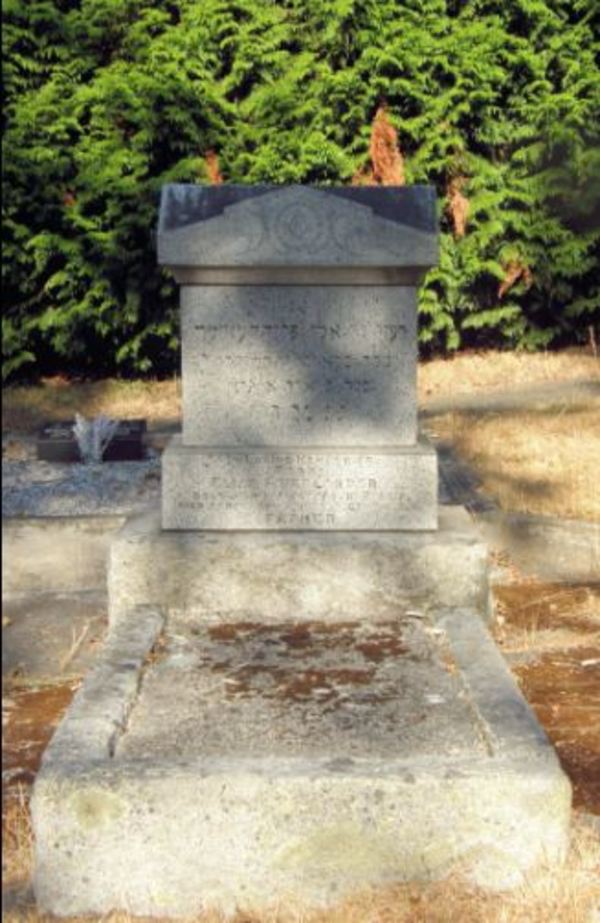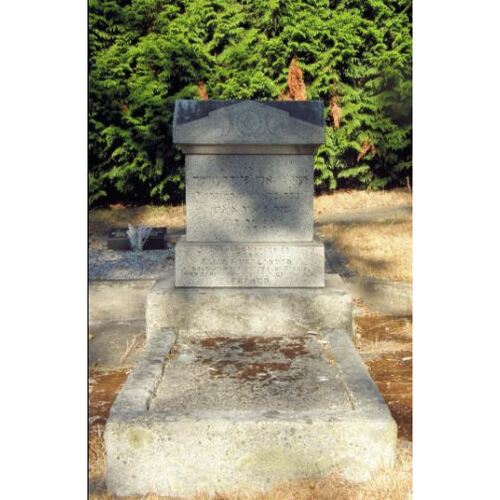
Source: Link
FRIEDLANDER, ELIAS, rabbi; b. probably on 12 July 1846 in Kovno (Kaunas, Lithuania); m. with two sons and two daughters; d. 22 Feb. 1927 in Victoria.
Elias Friedlander received his education in rabbinics at the rabbinical academy of Kovno. Subsequently he immigrated to Germany, where he prepared for the rabbinate at the Jewish Theological Seminary of Breslau (Wrocław, Poland), which taught a blend of traditional Judaism and moderate reform in ritual. At age 21 he accepted his first congregation, in Sunderland, Durham, England, where he served from 1871 to 1878. From 1879 to 1882 he was the spiritual leader of the English and German congregation in Kingston, Jamaica.
In 1884 Friedlander was elected to the position of minister of the Congregation of English, German and Polish Jews of Montreal, one of the largest Jewish congregations in Montreal, which represented a moderate, acculturated traditionalism. Its members had great respect for religious customs and ceremonies within the synagogue, but had largely adopted English Canadian norms in their personal lives. Two years later Friedlander officiated at the consecration of a new synagogue for the congregation, named Shaar Hashomayim. In 1887 he was a founding member of one of the first proto-Zionist societies in Canada, probably the Hovevei Zion Society of Montreal. It never flourished, however. He remained at Shaar Hashomayim until 1896, when he resigned because of differences with the congregation’s trustees. From 1896 to 1899 he lived in New York City and Chicago.
In 1899 Friedlander returned to Montreal and he ministered as rabbi to the Reform congregation of Temple Emanu-El until 1901. Reform Judaism had arisen in Germany in the early 19th century when many German Jews sought to transform their religion and their way of life so as to show themselves worthy of equal rights with Christians and to present Judaism as a religion in consonance with western norms. It attempted to renew Judaism through changes in liturgy and the abrogation of numerous Judaic laws which restricted Jews from fully engaging in the life of the Gentile world. In Canada, Reform Judaism had spread much less quickly than in the United States, largely because Jews from England had established a basic pattern of respect for their ancient forms of public worship which neither interfered with their acculturation nor represented a major issue in the debate over their political rights.
Subsequently, from 1905 to 1907, Friedlander served as rabbi of the Shaarey Shomayim Congregation in Winnipeg, which likewise represented acculturated Jews, and as rabbi of a congregation in Vancouver. He spent some time in New York City before being elected rabbi of Temple Emanu-El in Victoria in 1910. He retired from the rabbinate in 1912 and died in Victoria in 1927.
British Columbia Vital Statistics Agency (Victoria), Death registration records (mfm. at the Victoria Geneal. Soc.). Victoria Daily Times, 22 Feb. 1927. A biographical dictionary of Canadian Jewry, 1909-1914: from “The Canadian Jewish Times”, comp. L. F. Tapper (Teaneck, N.J., [1992?]). A. A. Chiel, The Jews in Manitoba: a social history (Toronto, 1961). C. E. Leonoff, Pioneers, pedlars, and prayer shawls: the Jewish communities in British Columbia and the Yukon (Victoria, 1978). B. G. Sack, History of the Jews in Canada, trans. Ralph Novek, [ed. Maynard Gertler] ([2nd ed.], Montreal, 1965).
Cite This Article
IRA ROBINSON, “FRIEDLANDER, ELIAS,” in Dictionary of Canadian Biography, vol. 15, University of Toronto/Université Laval, 2003–, accessed January 2, 2026, https://www.biographi.ca/en/bio/friedlander_elias_15E.html.
The citation above shows the format for footnotes and endnotes according to the Chicago manual of style (16th edition). Information to be used in other citation formats:
| Permalink: | https://www.biographi.ca/en/bio/friedlander_elias_15E.html |
| Author of Article: | IRA ROBINSON |
| Title of Article: | FRIEDLANDER, ELIAS |
| Publication Name: | Dictionary of Canadian Biography, vol. 15 |
| Publisher: | University of Toronto/Université Laval |
| Year of publication: | 2005 |
| Year of revision: | 2005 |
| Access Date: | January 2, 2026 |



